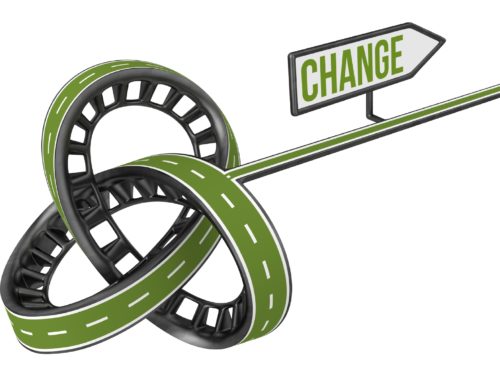May is election time in many communities, and that means government performance and results are likely to come up where you live.
The government we want is nimble, flexible, and responsive. The government we experience, in many cases, is slow, cumbersome, and totally unresponsive.
Let’s put this another way: We want our government to operate like our favorite business. We believe, in contrast, that our government is the poster child for lumbering bureaucratic inefficiency and employees who are out of touch with the realities of the marketplace.
Twenty plus years of working with private and public sector organizations has taught me that the truth is actually somewhere between the two extremes.
When government gets it right
How long does it take the local fire department to respond to a call in your community? Where I live, it is less than five minutes. Think about that for a moment. A group of “government employees” wakes up or stops what they are doing; grabs their gear and jumps on a truck; and busts their tails to be at my house in less than five minutes from receiving a distress call. And, they do it every time.
Where I live, the same is true for the police department, too.
This amazing performance is not an accident. The fire and police in the community where you live are most likely equally dedicated. And there are a number of reasons why:
- They have clear goals that are measured. Every city measures performance in the critical areas that are important to them and regularly report on them.
- They are careful who they hire. Not everyone who walks in off the street can become a firefighter or police officer.
- They train … a lot. Your fire and police staffs are continuously working on ways to improve their performance.
- They are given the tools to succeed. Some cities give their police and fire departments every new piece of technology available. Others take a more conservative approach, but all give these critical departments the basic tools they need to succeed.
- They are paid fair wages and benefits. Every elected official in municipal government will find ways to pay fire and police officers as much as they can. And, many elected officials will appropriate money for fire and police raises even if it means excluding other areas. Every one of them would like to earn more, but for the most part elected officials will gladly pay the market rate for fire and police.
- They are empowered to act. That doesn’t mean that police officers and firefighters have no accountability. And, they will tell you that there is probably more bureaucracy than they like. But when it is time to make a decision and act, they do so.
When government gets it wrong
Four words say it all: Affordable Care Act rollout. We haven’t seen a screw up this bad since the FEMA response to Hurricane Katrina.
At the core of both of these fiascos is the failure of one – and usually more – of the six success factors described above. You can blame the agency leaders, and in some cases you would be correct. But the real culprits are the elected officials … especially those who operate as follows:
- They believe that employees are an expense rather than an investment. They scrimp on training; give raises as a last resort; and fund new equipment purchases as a last resort – all the while saying that “employees are our most important resource.” No, you should not throw money at people for the sake of being liked or securing support, but you must see people as an investment in a service business.
- They are unclear or misaligned on expectations, goals, and measures of success. Not every vote will be unanimous. It isn’t that way in the corporate world either. The difference is that once a decision is made, the leaders in a business switch their focus to making it work.
- They assume that employees are the enemy who must be monitored at every turn rather than trusted to serve citizens. There are bad employees in the public sector just like there are bad employees in the private sector. The best companies and government leaders don’t treat the 95 percent who are doing a good job like the 5 percent who are poor performers.
- They want the best talent but create an environment that attracts mediocrity.
- They want an empowered staff as long as they never make a mistake or always act in ways that support the elected officials’ political goals.
Let’s get real
There are structural differences between government and the private sector that make it impossible for any government agency to be as nimble and responsive as their private sector counterparts. Government – at its best – operates with a degree of transparency and due diligence that is not required in the private sector. It is, after all, the taxpayer’s money, and government must serve all constituencies. They can’t turn a customer away for being rude. They can’t offer a different level of service to one group over another. And, there are very few decisions that your elected officials can make outside of the public arena.
But, government, just like the private sector, can and must do things faster, better, cheaper, and friendlier. And it begins when the elected officials create clarity of goals and expectations; a tone of getting things done; and a culture that promotes employee success rather than a fear of failure. There are those who do it well. Unfortunately, we don’t hear about them.
Here’s what you can do
The police and fire departments in your community are held to a standard of accountability. Citizens must do the same with their leaders. Accountability from elected leaders will increase when accountability increases with citizens. Educate yourself on the real issues for every race. Vote, engage, and communicate. Most important, continue to engage and communicate long after Election Day.
This is a question of leadership not politics. It doesn’t matter if you elect a screaming liberal, a rabid conservative, or someone in between. What does matter is that both elected officials and the citizens who place them in office understand this truth: a responsive government is an oxymoron unless you engage as a leader who helps the organization be better rather than standing apart waiting for people to screw up.





